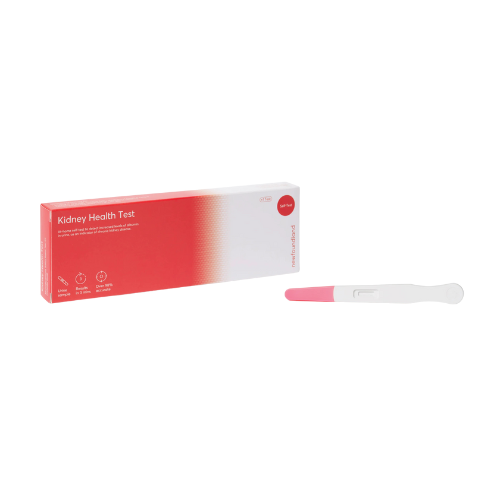
Newfoundland
Newfoundland - Kidney Health Test Kit - Self-Test for Albumin in Urine
Product Features
Pickup available at The Wellness Store®
Usually ready in 1 hour
Estimated delivery is between Friday, 07 Nov and Sunday, 09 Nov if you order right now anywhere in UK
Description
The Newfoundland Kidney Health Test Kit is a quick and easy at-home self-test that helps detect increased levels of albumin (a blood protein) in your urine. Elevated albumin can be an early sign of chronic kidney disease (CKD), allowing you to take action and seek medical advice results kidney damage worsens.
This test is ideal for people at risk of kidney disease-especially those with diabetes, high blood pressure, or a family history of kidney problems. It can also be useful for anyone experiencing possible symptoms such as swelling in the legs, ankles or feet, fatigue, shortness of breath, nausea, dry or itchy skin, or frequent urination. Early detection of kidney damage can help supports more serious complications down the line.
Each Kidney Health Test Kit includes a urine test stick, a colour comparison card, and easy-to-follow instructions. You’ll just need a timer to complete the test. The test is clinically tested for over 98% accuracy and works by comparing your test result against the provided colour chart to check for abnormal albumin levels.
How do you perform the test?

Disclaimer: This product is a general wellness item. It is not intended to diagnose, treat, cure, or prevent any disease. Always consult a qualified healthcare professional if you are pregnant, breastfeeding, taking medication, or under medical supervision. Food supplements should not be used as a substitute for a varied diet and healthy lifestyle.


